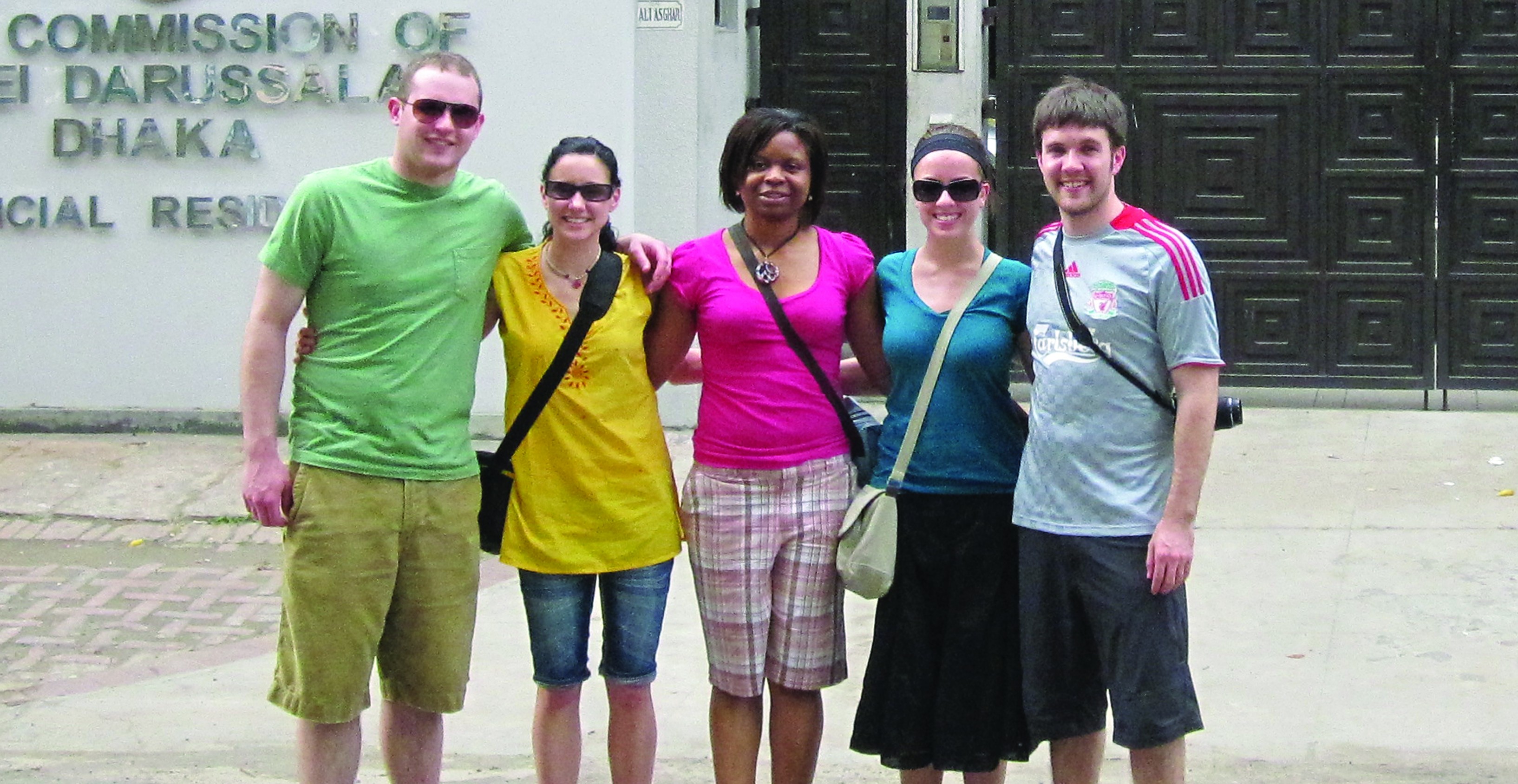Concordia has a medical school acceptance rate of 88 percent, but students still look for any opportunity to give them the upper hand when applying to medical school or graduate school. Seniors Peace Eneh and Jarryd Campbell have definitely found that leverage after spending two weeks studying hookworms in Bangladesh and getting their findings published in the Yale Journal of Biology and Medicine.
“Basically, grad school is where you do research and get published. If you do that in undergrad, it speaks volumes,” Eneh said. Eneh is hoping to go to medical school after she graduates.
Campbell, who recently got accepted into the University of Minnesota’s graduate program, agreed.
“Publications are like currency,” he said. “It’s how people know if you’ve been successful.”
These students’ success came after spending two weeks alongside Jennifer Bath, Concordia biology professor, surveying people in Bangladesh about their knowledge of hookworms. Specifically, Bath and her students have been focusing on the helminth hookworm. Amanda Bakken, Megan Knox, and Michael Schiedt were also a part of this research group and graduated in 2010.
Bath was introduced to helminthes during graduate school by her professor, Michael Robinson. As she learned more about neglected tropical diseases, she gained a greater appreciation for the devastation that these hookworms cause and the kind of negative impact that they have on health around the world.
The purpose of the survey was to evaluate how aware the local people were about helminth hookworms, especially how they are transmitted or how they could be prevented.
“The results from this survey show that although a large percentage of the respondents were knowledgeable about the spread and impact of intestinal worms, the majority of individuals still do not take the necessary steps to prevent infection,” Bath said.
Bath also said that there was a shared misconception among the people in Bangladesh that older children and adults were immune to the diseases, causing them to stop receiving treatment even if they did get infected after the age of about six. And while “most individuals would classify these diseases as a big problem for Bangladesh,” Bath said, only a small percentage actually take action to prevent them, for instance, by wearing shoes.
So why is fighting against the helminth hookworm important? Hookworms enter the body through the feet, and since many people in impoverished countries don’t wear shoes on a regular basis, they are easily susceptible. Once the hookworm enters the body, it travels to the intestinal track where it lays eggs and continues to grow.
From there, even more problems arise. Especially for infected children, malnourishment is one major effects of the hookworm since the host body has to try and feed itself and the parasite. In a place where food is already a limited commodity, this becomes a serious problem. Not only that, but the parasite also affects mental development in children.
“Really, the parasite is not going to kill you,” Campbell said. “Malnutrition, diarrhea, and anemia might. The body is constantly fighting this parasite, so it can easily get infected with other diseases.”
In the end, Eneh said that hopefully this article will encourage readers to invest in the vaccine, since other suggested methods of prevention for the helminth hookworm have been unsuccessful.
One suggestion is that more shoes should be supplied to these people in order to eliminate the problem. However, Campbell and Eneh said that hasn’t worked in the past. The culture in Bangladesh views shoes as a precious commodity. Therefore even if they were to receive a pair, they would only wear the shoes for special occasions.
Another suggestion is to distribute drugs that have already been found to treat hookworms. However, the treatment is not preventative, and even those who are treated almost always get re-infected. Campbell described it as, “a chronic issue.” Also, after childhood the people of Bangladesh believe that they are immune and don’t receive treatment anyway.
During her time in Bangladesh, one of the things that has stuck with Bath most is the “perseverance and hope” of the Bangladesh people, and how they “welcome foreigners to their country graciously.”
For these reasons, Bath has been working with students to discover the vaccine for about 15 years now. And while it hasn’t been discovered yet, each step brings them closer to the day that it will.






Be First to Comment